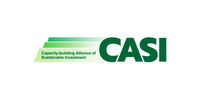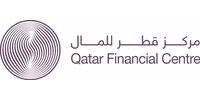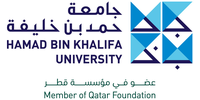September 23-25, 2024 | Doha, Qatar
CASI Sustainability Forum
Online Participation Link:
Day 1: https://us06web.zoom.us/j/88583610133
Day 2: https://us06web.zoom.us/j/81647813666
Event Livestream Link:
The Middle East is actively transitioning its energy and industrial sectors from traditional sources, such as oil and gas, to new, sustainable energy sources like solar and wind, in line with the global trend of decarbonization. Although oil and gas have historically fueled regional economies, global demand for these traditional energy sources is expected to decline. Simultaneously, green and low-GHG transitions are underway in various sectors, including transportation, steel, cement, chemicals, shipping, aviation etc.
Given these developments and the need for investments amounting to trillions of dollars to support green growth and low-GHG transitions, it is crucial to build capacity within the sustainable investment ecosystem. Recognizing this need, stakeholders from both within and outside the region are focusing on capacity-building initiatives.
After two successful capacity-building events for Latin America and Asia respectively, the Capacity-building Alliance of Sustainable Investment (CASI) shifts the spotlight to the Middle East and North Africa (MENA). Co-hosted by CASI and the Institute of Finance and Sustainability (IFS), the Industrial and Commercial Bank of China, and Qatar Financial Centre, this event will be hosted in Doha, Qatar from 23 to 25 in September 2024.
With energy transition at its core, this event focuses on two pivotal perspectives: "Innovations in Sustainable Finance" and "Effective Industry-Specific Transition." Targeting policymakers, financial institutions, and industry leaders in the MENA region, the event aims to foster capacity-building efforts and engage approximately 200 participants. The objective is to enhance capabilities in sustainable finance and industrial transformation, thereby supporting the region's sustainable development goals.
The event spans two and a half days, comprising two days of workshops and a half-day site visit. Each day's workshop features keynote speeches and three panel discussions. The first day will delve into the most crucial topics surrounding sustainable finance in the MENA context. Day two will focus on industry-specific discussions, addressing the most pressing needs or formidable challenges in the region's low-carbon transition, fostering meaningful dialogue and exchange. On the third day, participants will embark on a half-day excursion to visit and glean insights from leading sustainable enterprises or pilot zones in Doha.
Agenda
08
30
-
09
00
09
00
-
09
20
Welcome Remarks
• Ma Jun, Chairman of CASI, President of IFS
• Yousuf Mohamed al-Jaida, CEO, Qatar Financial Centre
09
20
-
10
00
Keynote Speeches
• Sheikh Ahmad Al-Thani, Assistant Governor, Qatar Central Bank
• Yaseen Anwar, Former Governor, State Bank of Pakistan & Central Asia Chair of Green Investment Principles (GIP)
• Mahamadou Tounkara, Regional Director, Middle East & North Africa (MENA), Global Green Growth Institute (GGGI)
10
20
-
10
50
10
50
-
12
00
Session I: Sustainable Finance in the MENA region: Markets, Policy Frameworks and Other Priorities
This session will focus on the development and significance of sustainable finance in the Middle East and North Africa, emphasizing the interplay between market dynamics and policy frameworks. As the region seeks to diversify its economies and reduce dependency on oil, sustainable finance has become a cornerstone of economic strategy. Policy frameworks for sustainable finance typically involve identifying sustainable economic activities, such as a sustainable finance taxonomy, sustainability disclosure, policy incentives, diversified financial products and capacity building, in addition to setting clear targets to guide investments and track progress. For example, Qatar aims to reduce GHG emissions by 25% by 2030 under its National Climate Change Action Plan. Additionally, the Qatar Stock Exchange (QSE) has implemented sustainability reporting guidelines to promote ESG practices among listed companies. This session will analyze market trends, regulatory policies, and strategic priorities, highlighting how these elements collectively drive the transition towards a sustainable economic model in the Middle East. In the meantime, Islamic finance also pays high attention to sustainability, such as the green sukuk, which will also be covered.
Moderator:
• Dalal Aassouli, Assistant Professor of Islamic and Sustainable Finance, HBKU, GIFT MENA Director
Panel Discussants:
• Ahmed Abdulsalam Al-Emadi, Head of Policies and Reporting, Environmental, Social, and Governance (ESG) Department, Qatar Central Bank
• Maha Al Saadi, Head of Regulatory Affairs, Financial Services Sector, Qatar Financial Centre
• Yin Hong, Senior Expert in Credit Approval Department of ICBC, Vice Chair of China Green Finance Committee
• Leng Bing, Board member, ISSB
• Bashar Al-Natoor, Managing Director, Global Head Islamic Finance, Fitch Ratings
12
00
-
13
00
13
00
-
14
00
Session II: Financing the Innovation of Green Technologies
This session will focus on the critical role of investment and financing in driving the innovation of green technologies, especially in the MENA region, with an emphasis on energy-saving technologies and energy alternatives, particularly hydrogen technology, water-saving innovations, green buildings, food security and green agricultural business advancements, etc. The region faces significant environmental challenges, necessitating the development of green technologies for sustainable growth. Countries like Saudi Arabia have taken proactive steps; for example, the NEOM project plans a $5 billion investment in a green hydrogen plant, aiming to establish leadership in hydrogen energy globally. Similarly, the UAE's Water Security Strategy 2036 targets a 21% reduction in total water demand, highlighting its commitment to resource sustainability. This panel discussion will explore various financing options that can support the advancement and deployment of these technologies, accelerating the adoption of sustainable solutions and fostering innovation in the Middle East.
Moderator:
• Ge Xing’An, Vice President, Susallwave
Panel Discussants:
• Tahir Hayat Pirzada, GM, Group Treasurer and Financial Institutions, Masraf Al Rayan
• Alexandra Soezer, Director for the Climate Action Centre of Excellence, Gulf Organization for Research & Development (GORD)
• Xiao Wang, Senior Partnership Officer, Asia Infrastructure Investment Bank
• Matthew Heaton, Partner, Head of Qatar Office, Al Tamimi & Company
14
00
-
14
20
14
20
-
15
20
Session III: Transition Finance and Innovative Financial Products
This session will explore the role of transition finance, focusing on the development and implementation of transition plans, innovative financial products and Islamic finance. Transition finance is crucial for helping economies shift from high-carbon activities to sustainable practices, especially in the oil-dependent countries in the region. For example, the aims set for energy generated from renewables by 2030 would account for 50% for Saudi Arabia, 20% for Qatar and 52% for Morocco, while Egypt aims for 42% by 2035 and will invest in green hydrogen projects, aiming to attract around $40 billion in investments. We will discuss the structured plans and strategies these countries are using to meet these targets, including sector-specific roadmaps and national policy frameworks. The session will also showcase innovative financial products such as green bonds, green sukuk, sustainability-linked loans and bonds. By analyzing these aspects, this session aims to provide insights into how the region can leverage financial innovation to achieve sustainability goals.
Moderator:
• Ma Jun, Chairman of CASI, President of IFS
Panel Discussants:
• Leo Chi Wai Tong, Head of Sustainability, Qatar National Bank
• Adnan Aziz, Chief Program Officer, Global Islamic Finance Program for Climate, Nature and Development (GIFP)
• Dina Zhanadil, Managing Director, Development Bank of Kazakhstan
• Muez Ali, Senior Policy and Research Associate from the EARTHNA Centre for a Sustainable Future, Qatar Foundation
• Amal Benaissa, Director, Sustainability Advocacy, Bank of Africa (online)
15
20
-
16
00
Tuesday, September 24, 2024
08
30
-
09
00
09
00
-
09
20
Welcome and Keynote Speeches
• Sonia Gandhi CFA, Senior Director-Education, CFA Institute
• Sa’d Abdel-Halim Shannak, Qatar Environment and Energy Research Institute (QEERI), HBKU
09
20
-
10
30
Session IV: Financing for Low-GHG Transition in Industries
In the MENA region, where energy consumption is high and industries heavily relies on fossil fuels, transitioning to low-GHG alternatives is critical. This session will discuss the role of sustainable finance in facilitating the transition to low-GHG alternatives in the MENA region's high-energy-consuming sectors, such as transport, chemicals, aviation and so on. The focus will be on attracting private investment, mitigating risks, and sharing successful models in these sectors. Experts will highlight financial mechanisms, policy incentives, and technological advancements, such as Sustainable Aviation Fuel, to support decarbonization and scale up sustainable solutions.
Moderator:
• Osama Ali, Managing Director, Head of Global Banking, HSBC
Panel Discussants:
• Zalina Shamsudin, Head of Technical Assistance and Capacity Building, CBI
• Kai Keller, Lead, Policy and Government Relations, Financial and Monetary Systems, World Economic Forum
• Fatma Al Shekaili, Trade Finance Lead, ASYAD Group Oman
• Sayeed Mohammed, Lecturer, Northwest University in Qatar
10
30
-
10
50
10
50
-
12
00
Session V: Carbon Trading as a Policy Lever to Unlock Sustainability Potentials in the MENA Region
This session will explore the crucial role of carbon trading in advancing sustainability and reducing GHG emissions. Carbon trading, including both compliance and voluntary markets, provides a market-based solution, enabling countries and firms to buy and sell emission allowances, thus encouraging reductions in carbon footprints. For example, Saudi Arabia's Vision 2030 includes plans to develop a carbon market to diversify its economy and reduce oil dependency. This session will discuss the mechanisms of carbon trading, update on regional initiatives, and their economic and environmental impacts, with an aim to offer insights on how carbon trading as a policy lever can support unlock sustainability potentials and support green growth and economic diversification in the region.
Moderator:
• Calvin Quek, Engagement Director, Transition Asia
Panel Discussants:
• Marcello Contestabile, Chief Economist, QEERI, HBKU
• Anton Tsvetov, Associate Director for Policy, The Integrity Council for the Voluntary Carbon Market (ICVCM) [online]
• Luyue Tan, Senior Carbon Analyst, London Stock Exchange Group
• Andrés Olarte Peña, Carbon Market Expert, International Carbon Action Partnership (ICAP)
12
00
-
13
00
13
00
-
14
00
14
00
-
15
00
Session VI: Financial Technology and its Role in Sustainable Financing
This session will explore the pivotal role of financial technologies (FinTech) in advancing sustainable financing in the MENA region. As the region embraces digital transformation, FinTech provides innovative solutions that enhance transparency, reduce transaction costs, and facilitate access to green finance. By leveraging technologies like blockchain and AI, FinTech empowers enterprises to engage in sustainable economic activities and improves financial inclusion. FinTech could play a special role in facilitating carbon trading. The FinTech ecosystem in the region is rapidly growing, driven by a surge in startups and investments. This session will examine how FinTech innovations integrate into sustainable finance strategies, discuss supportive regulatory frameworks, and highlight the development of systems to streamline green finance and ESG evaluations, particularly benefiting SMEs.
Moderator:
• Gabriel Wong, Chief Commercial Advisor, MetaVerse Green Exchange
Panel Discussants:
• Henk Jan Hoogendoorn, Chief Financial Services Sector Officer, QFC
• Patil Mesrobian, Sustainability Solutions Director – MEA, S&P Global Sustainable1, United Arab Emirates
• Michael S Wood, Partner, MENA EY Sustainability
• Alexandros Catalin Bakos, HBKU
15
00
-
15
30
15
30
-
15
45
Wednesday, September 25, 2024
09
00
-
12
30
Half day Site-visit
To be released soon.




















